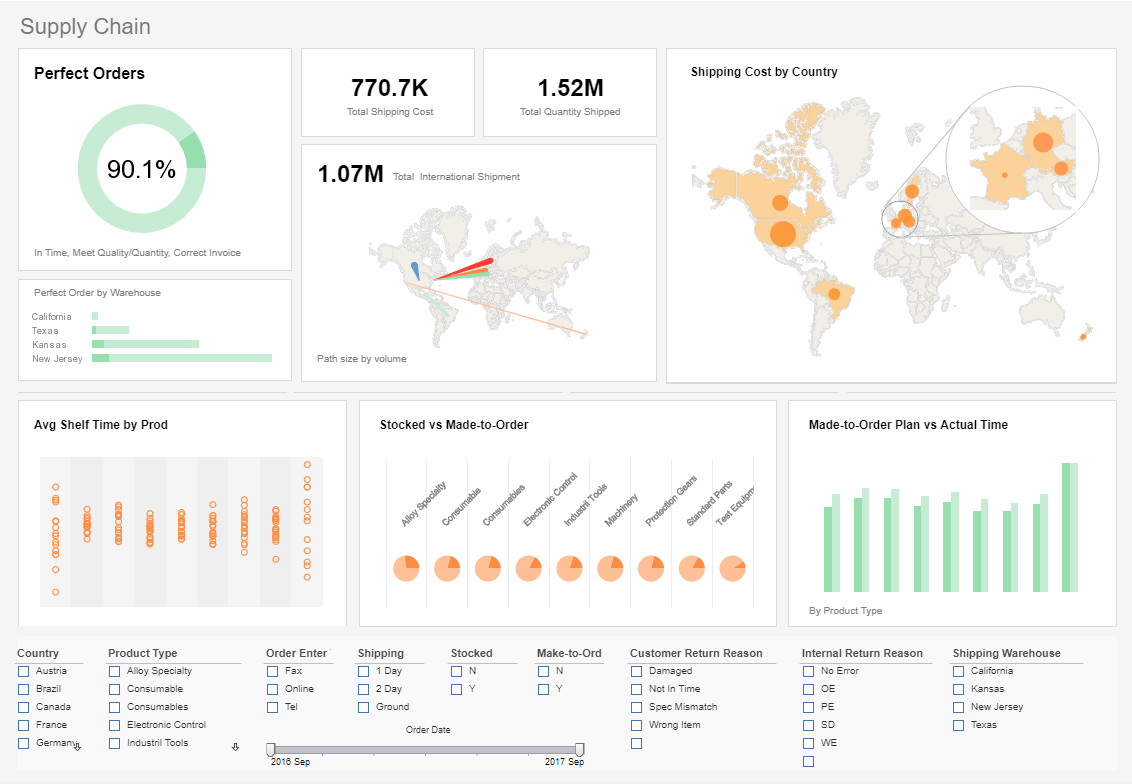InetSoft Seminar: Tip For Successful Performance Measurement
This is the continuation of the transcript of an in-person customer seminar hosted by InetSoft on the topic of "Performance Management Best Practices." The speaker is Christopher Wren, Principal Consultant at TFI Consulting.
OK, the last tip for successful performance measurement: we don’t institutionalize the initiative. Okay. When I say institutionalize, what does that mean to you? It’s how you do business, right? It comes woven into the very culture of the organization. And I spent a ton of time thinking about this, folks. And here’s why I think we have a hard time making performance management part of our culture.
Number one, we let the budget override the effort. Is that happening in your organization? Is it? As a manager in your organization if you think this entire nation has been driven by the budget office, what’s the embedded message to those managers? What’s that? It could be code speak for cuts, what else? If you don’t hit your mark, what? There could be financial consequences, right?
You’re sending an incorrect message to your managers, folks, because they believe that if this is a budget game, it’s all about efficiencies and cutbacks, and if they do not hit their mark, there will be cuts. So guess what’s going to happen? They are always going to hit their mark. Have you seen this? Yeah? Are they sand bagging?
It drives all kinds of behaviors, now I’m not suggesting to you that linking performance to the budget or to resource decisions are not important. It is important, but before you go there make sure you've trained your managers on how to use these and make sure that you’ve communicated them to the workforce. Performance failure is not a bad thing.
| #1 Ranking: Read how InetSoft was rated #1 for user adoption in G2's user survey-based index | Read More |
It’s actually a good thing because if you can’t see failure, you can’t what? You can’t fix it. Folks, if you can’t see failure, I’m going to submit to you, you’re rewarding it. Think about that. Folks, the reason you put these measures in place so you can see what you’re falling short so that you can improve it.
But what we do is because we’re sending the wrong messages to our organizations, is we're driving even behavior because they fear what? Failure. We fear failure. By the way do I need to spend time on number two because isn’t that why you’re here? Right?
If you do not support your performance management effort with some consistent enterprise wide IT solution, in time what you have is a whole bunch of legacy systems in every division for tracking performance, and you just did what? Reinforced, silo mentality. All right. So we fear failure.
Let me talk to you very quickly about failure, and then I’ll let you go. I wish we could spend a lot more time together. Okay. You can read this slide when you get it, if you want it. Failure is something I have studied extensively. In fact, you all have a brochure for my upcoming book. I spend a lot of time in this book talking about failure. I think a lot about it.
You can read the slide on your own time. But I want to over two of these points with you. If you never fail, it’s likely you weren’t trying anything new. And if you never fail, it’s likely you’re not trying anything new. And that means you’re what? Complacent or stagnant.
 |
Read the top 10 reasons for selecting InetSoft as your BI partner. |
I come from a family of brothers. It’s very quick story. My dad taught us how to water ski when we’re old enough to walk. If we get behind the boat and just hang on you will have a good time. Don’t ever get frustrated with this. He spins around and says get in. You’re like, why? He says, because if you’re not failing, you’re not having a good time. No, son you don’t get it.
If you are not failing, it means you’re not trying anything new. If you’re not trying anything new, then you’re not learning to grow. And son, if you’re not learning growth, then what’s the point? I learned that lesson so well when I was 16 years old, I broke my neck water skiing. You probably don’t want to do that. But the point is sometimes learning can be what? Painful. Painful, but folks, if we are not failing, it is likely you’re not trying anything new.
If you’re not trying anything new, you are stagnant. If you are stagnant, you’re behind the competition whether in government or industry. Down here, this is what I really like. If there’s no risk or controversy in your life, I’m submitting to you, you’re not working on anything of consequence. What do you think about that?
| Previous: Making Performance Measurement Meaningful |


